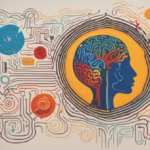
Antibiotic resistance, a looming global health concern, is a phenomenon where bacteria adapt to the drugs designed to destroy them, thereby persisting and continuing to cause the diseases. This detailed guide sweeps across its causes, impacts, and possible countermeasures.
Understanding Antibiotic Resistance
Antibiotics, splendid weapons against numerous infectious diseases, revolutionized the sphere of medicine. But their overuse and misuse resulted in a global problem: Antibiotic resistance. A resistant bacterium is not impacted by the antibiotic, and its ability to survive and even multiply in the presence of an antibiotic has explicit implications for human health, including prolonged illnesses, increased mortality, and higher healthcare costs.
(Read Also: The Critical Role of Vaccination in Promoting Global Health: Decoding its Synergies)
The Advent and Rise of Antibiotic Resistance
Staphylococcus aureus, the superbug as it’s often known, gave the first glimpse of a resistant bacteria in the early ’40s. But it escalated swiftly, and today superbugs like MRSA, VRSA, and ESBL-producing bacteria demonstrate resistance to multiple antibiotics. This escalation roots primarily to the overuse and misuse of antibiotics, whether in healthcare, farming, or everyday life.
The Global Impact of Antibiotic Resistance
Resistant bacteria hazard a significant challenge to scientists and healthcare organizations worldwide. As per WHO, AMR (Antimicrobial Resistance) is among the ‘Top 10 Global Public Health Threats.’ And yet, the awareness and understanding of AMR remain limited, nurturing an exigency for widespread knowledge mobilization.
The Battlefront
The war against antibiotic resistance is a twofold strategy- a concerted effort to limit the use of antibiotics wherever possible and relentless scientific exploration for new combat tools. Proactive infection prevention, such as vaccines, appropriate sanitation, and hygiene play vital roles in reducing the need for antibiotics. Simultaneously, researchers globally are striving by studying antibiotic resistance and devising new medications to fight resistant bacteria.
(Read Also: Unlocking Global Health: The Imperative Role of Vaccination)
Understanding and Prevention – An Individual’s Role
Every one of us has a part to play in battling antibiotic resistance. Understand the implications of unwarranted antibiotic treatments, viral infections like flu or cold, not curable by antibiotics but often mistreated with them. Adhere to the advice of your healthcare professional, and create awareness about the responsible use of antibiotics.
Conclusion
Antibiotic resistance is a reality that mankind can’t afford to ignore. Along with the healthcare community, society at large has to come together to control the spread. As individuals, adhering to the guidelines of antibiotic use may seem a small step but proves substantial in this collective fight.
Last modified: 11 December 2023


















